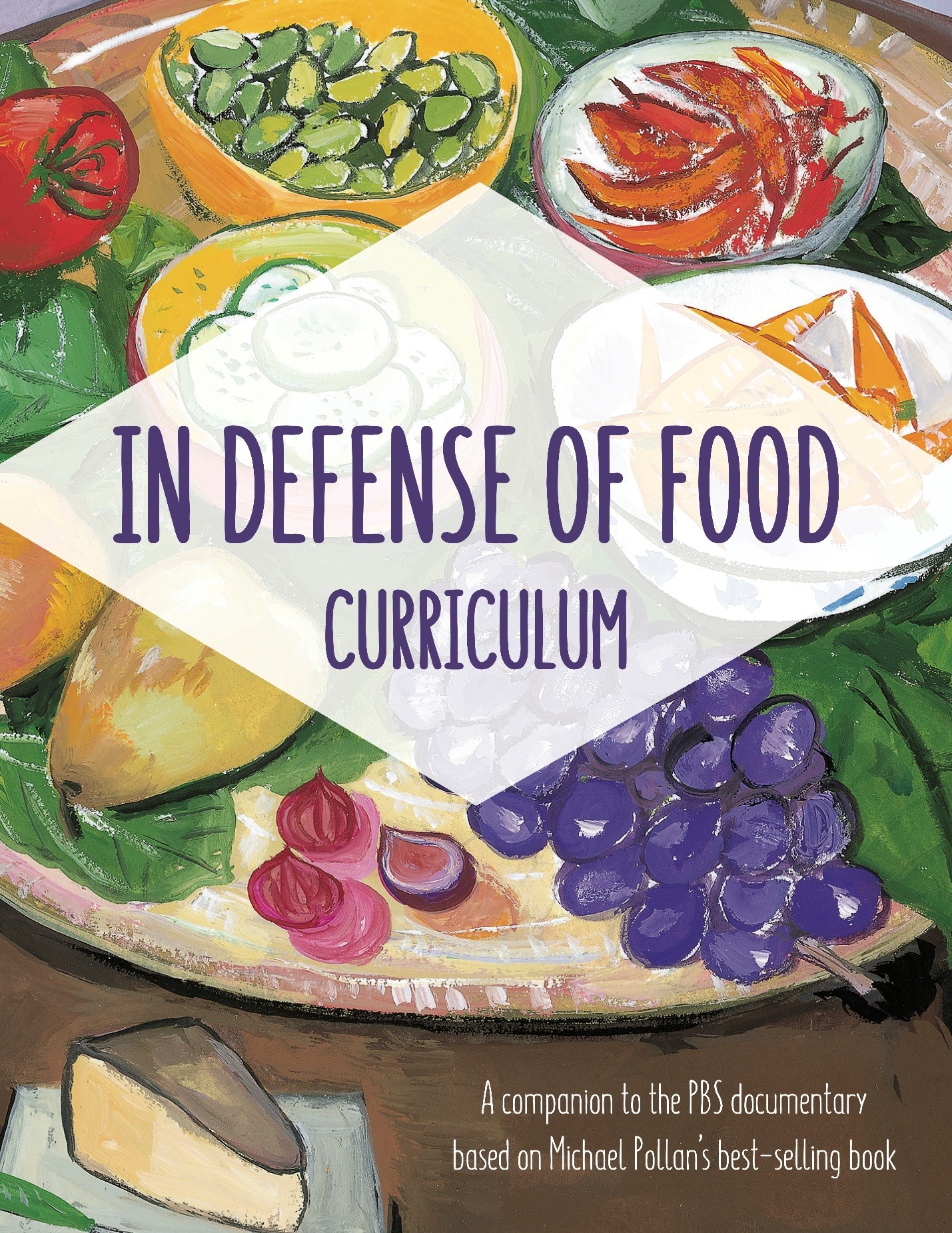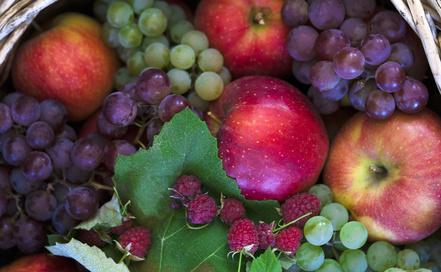 In Defense of Food is a project of Kikim Media, LLC. The centerpiece of the project is a two-hour PBS documentary. It also includes a web site (pbs.org/indefenseoffood), materials for organizing community screenings and house parties (including a shorter version of the documentary) and Spanish-language materials. This accompanying curriculum for middle school aged students was developed in partnership with the Laurie M. Tisch Center for Food, Education & Policy, Program in Nutrition at Teachers College, Columbia University.
In Defense of Food is a project of Kikim Media, LLC. The centerpiece of the project is a two-hour PBS documentary. It also includes a web site (pbs.org/indefenseoffood), materials for organizing community screenings and house parties (including a shorter version of the documentary) and Spanish-language materials. This accompanying curriculum for middle school aged students was developed in partnership with the Laurie M. Tisch Center for Food, Education & Policy, Program in Nutrition at Teachers College, Columbia University.
Designed to help students answer the question, “What should I eat to be healthy?” the In Defense of Food Curriculum (IDOF) provides critical tools and lessons for healthier eating. The curriculum was developed as a companion to the PBS documentary based on Michael Pollan’s best-selling book, by the Laurie M. Tisch Center for Food, Education & Policy, Program in Nutrition at Teachers College, Columbia University, in partnership with Kikim Media, LLC. It is designed for middle school after-school programs, and is easily adaptable for young people ranging from age 10 to early adulthood.
The curriculum targets children at a critical age when they are starting to make decisions about what to eat. Through 10 sequential, two-hour lessons, incorporating film clips, recipes, card-sorting activities, and games, students learn how to eat healthfully, create action plans for changing their eating habits, and challenge the influence of food companies. The lessons apply research-based strategies to question students’ perceptions of what “food” is, connect with the everyday experiences of young people, and help students navigate our society’s complex food environment. The curriculum has four guiding themes based on Michael Pollan’s famous slogan: Eat food. Not too much. Mostly plants.
- Eat Food. These lessons teach students to differentiate real, whole foods from highly processed foods, called “phuds” in the curriculum. They discuss why we should eat more whole foods and fewer phuds, and how companies use cunning marketing strategies to tempt us to eat phuds.
- Not Too Much. These lessons discuss the health consequences of eating too much, as well as how our food environment influences when, what, and how much we eat.
- Mostly Plants. This section teaches students what it means to eat mostly plants through the preparation and tasting of plant-based meals and snacks and by developing practical strategies to incorporate plant-based diets in their daily lives.
- Celebrate. To wrap up the curriculum, students share a final project, eat a meal together, and discuss their food future: eating more foods and fewer phuds, and sharing what they’ve learned with friends and family.
The Tisch Food Center conducted a study of three urban middle schools that incorporated the IDOF Curriculum in their after-school programs, and found an increase in consumption of fruits and vegetables and a decrease in consumption of highly processed foods, both statistically significant.
The Celebration is a great way to share and summarize what the students have learned. Overall this curriculum, a companion to the PBS documentary In Defense of Food, is a great tool for children to think critically about food. Students prepare delicious recipes, create performance poetry and participate in peer-to-peer learning to investigate the question, “What should I eat to be healthy?” As they progress through the ten lessons, they will discover what Michael Pollan means by his now-famous answer: Eat Food. Not Too Much. Mostly Plants.
The full curriculum PDF can be accessed for free through the resources page of the PBS In Defense of Food website. Scroll down to the section titled “For Educators,” and click on the link to download the curriculum. In the pop-up window, choose “Use your educational materials,” and you will be redirected to a PDF of the full curriculum. Every lesson includes links to the corresponding film clips on the PBS website.
Additional Information:
- Review of In Defense of Food Curriculum: Burns, Melanie Tracy. In Defense of Food [New Resources for Nutrition Educators. J Nutr Educ Behav. 2016;48:433. http://www.tc.columbia.edu/tisch/resources-overview/curricula/http://www.jneb.org/article/S1499-4046(16)30107-5/abstract
- More about the film: In Defense of Food is a project of Kikim Media, LLC. The centerpiece of the project is a two-hour PBS documentary. It also includes a web site (pbs.org/indefenseoffood), materials for organizing community screenings and house parties (including a shorter version of the documentary) and Spanish-language materials. Major funding for In Defense of Food was provided by the National Science Foundation and PBS.
- Evaluation of the In Defense of Food Curriculum Bhana H, Contento I Koch P, Gray HL, Uno C. In Defense of Food (IDOF) Curriculum: A Formative Evaluation of an Afterschool Middle-School Intervention, Journal of Nutrition Education and Behavior, 48(7), S70, 2016
Contributors
Kasey Wien, Teachers College, Columbia University
Pam Koch, EdD, RD, Teachers College, Columbia University
